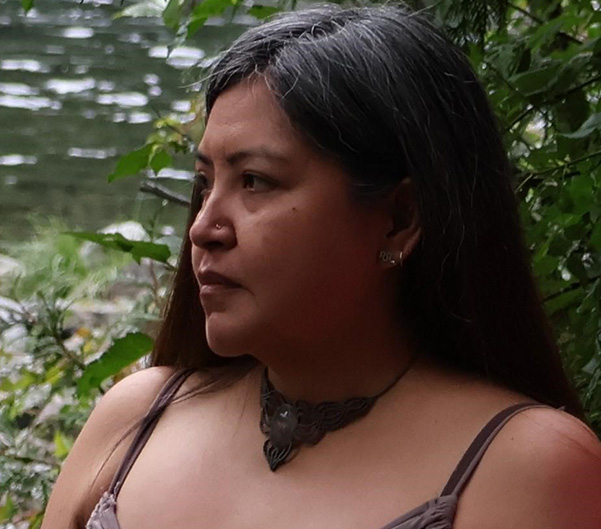Restoring trust: Indigenous-led research as a path to health equity

Between 1948 and 1952, approximately 1,000 Indigenous children in some Canadian residential schools were denied milk, fed experimental flour, and rarely given meat, fruits, or vegetables. Already suffering from malnutrition, these children were subjected to government-funded research on the effects of dietary deprivation and the supposed benefits of supplements.
“This history has led to a focus on transparency and community involvement in our research projects,” says Lynnette Lucas, “in order to protect Indigenous children—now and in the future—from the harms of the past.”
Lucas is the Principal Investigator of one of several CIHR-funded projects under the Indigenous Healthy Life Trajectories Initiative (I-HeLTI), focused on restoring healthy family systems and promoting healthy child development in First Nation communities. I-HeLTI is co-led by 23 communities from three nations: the 14 Nuu-chah-nulth Nations (represented by the NCN Tribal Council), the Cree Nations of Maskwacîs, and the Cree and Dene Nations of the Regional Municipality of Wood Buffalo. These communities, located in British Columbia and Alberta, have played a central role in designing and guiding the I-HeLTI research projects.
Over the course of 18 months, research teams collaborated with Indigenous communities through extensive consultations. Elders, parents, teens and children shared their knowledge and perspectives, helping to identify community-driven health priorities and guiding the direction of future research efforts. Several of the resulting research goals and programs were shaped directly by these community conversations. The teams are now working to prevent non-communicable diseases, such as mental health issues, and cardio-metabolic conditions, which disproportionately affect Indigenous communities. Each team is taking a distinct, community-based approach that integrates local health programs with research efforts.
The Maskwacîs Mom’s Support and Healing Circle, and the Deadly Dads program (where “deadly” is a term of endearment meaning “cool”), help Indigenous parents strengthen their connection to family and culture. Deadly Dads, for example, encourages Indigenous fathers to deepen their involvement in their children’s lives through cultural activities, group discussions, and community events that honour their roles and experiences. Wood Buffalo’s Aunties Within Reach program provides families with Indigenous birthworkers, called “aunties,” to help with pregnancies, childbirth, and early parenting. And the Mother Support Workers and Healthy Babies programming on Vancouver Island offers culturally relevant services to Indigenous mothers and families. All the programs focus on strengthening parenting skills, building supportive networks, and deepening connections to cultural identity.
“Diabetes, heart disease, and mental health issues were not things we struggled with in the past,” says Lucas, “so what part of our traditional knowledge protected us from these diseases?” she asks. “It’s looking at incorporating the information we already know into programs and getting people to actively participate in those programs as part of their health journey.”
The research teams from the University of Alberta and Simon Fraser University involved in this long-term study are encouraged by the progress made in restoring healthy family systems and building teams of skilled professionals in each community. “We want to leave the communities with strategies and information that will support healthy child development,” Lucas says. “We want to establish an ongoing approach that truly recognizes, values, and incorporates the community’s own traditional knowledge into the process.”
These collaborations are vital in integrating Indigenous perspectives into health research and ensuring that culturally relevant programs are developed to support the health and well-being of Indigenous children and families.
At a glance
Issue
Indigenous populations in Canada experience higher rates of heart disease, diabetes, and mental illness, compared with the general population. The increase in non-communicable diseases among Indigenous populations can be traced to the loss of traditional diets and lifestyles, as well as the legacy of colonial institutions.
Research
The Indigenous Healthy Trajectories Initiative (I-HeLTI), funded by CIHR, focuses on improving health from preconception through pregnancy, childhood, and into adulthood, recognizing that the early stages of life play a critical role in shaping long-term risks for chronic diseases. Researchers, working with members of Indigenous communities, have developed community-led programs that combine Indigenous knowledge with Western science to support lifelong well-being.
- Date modified: